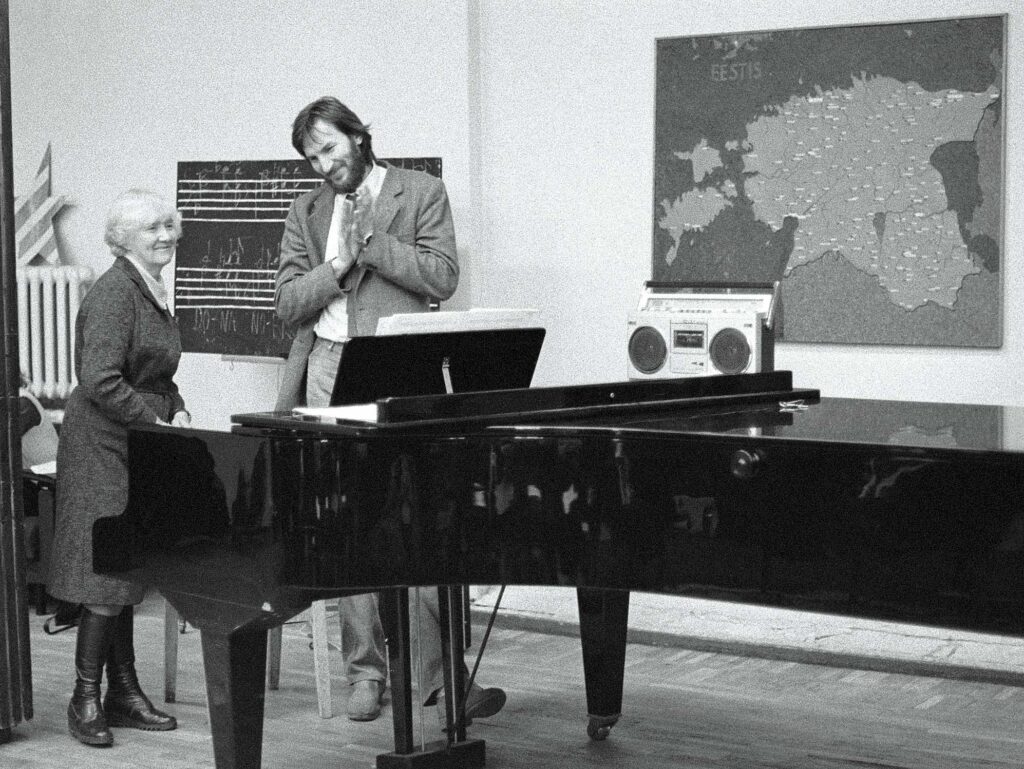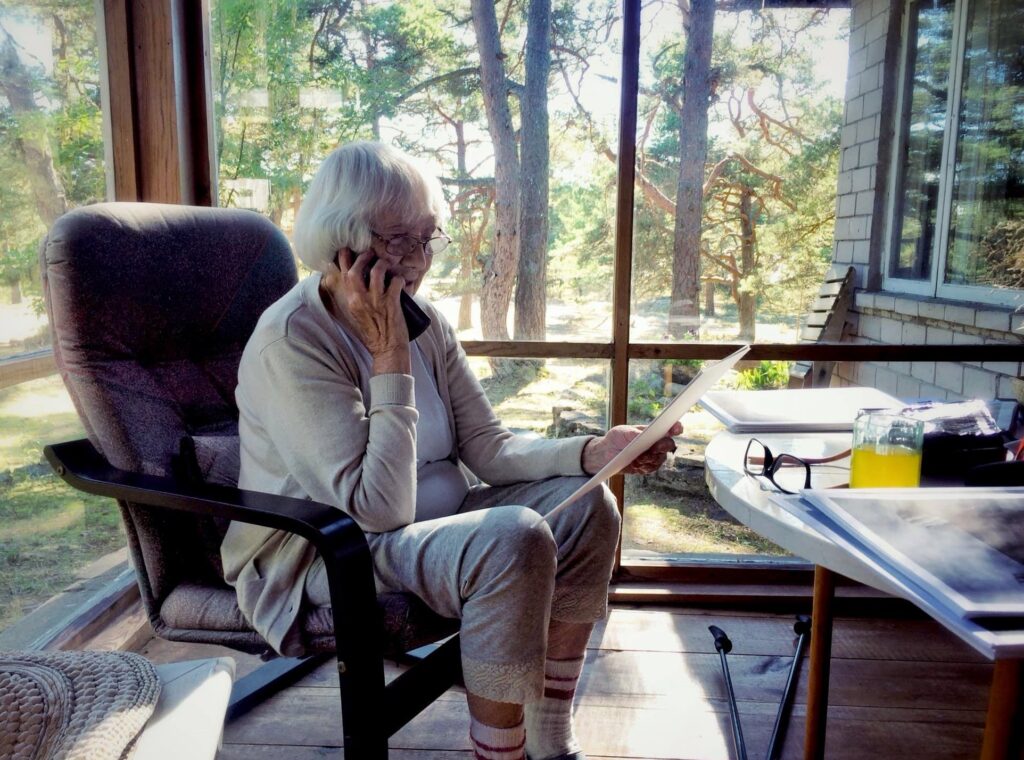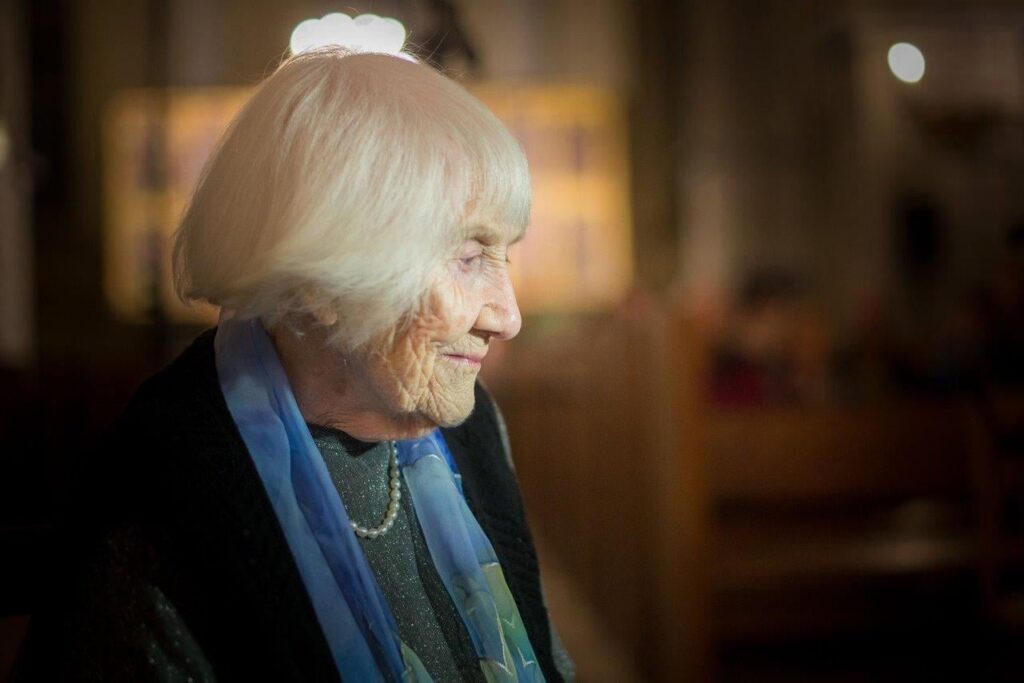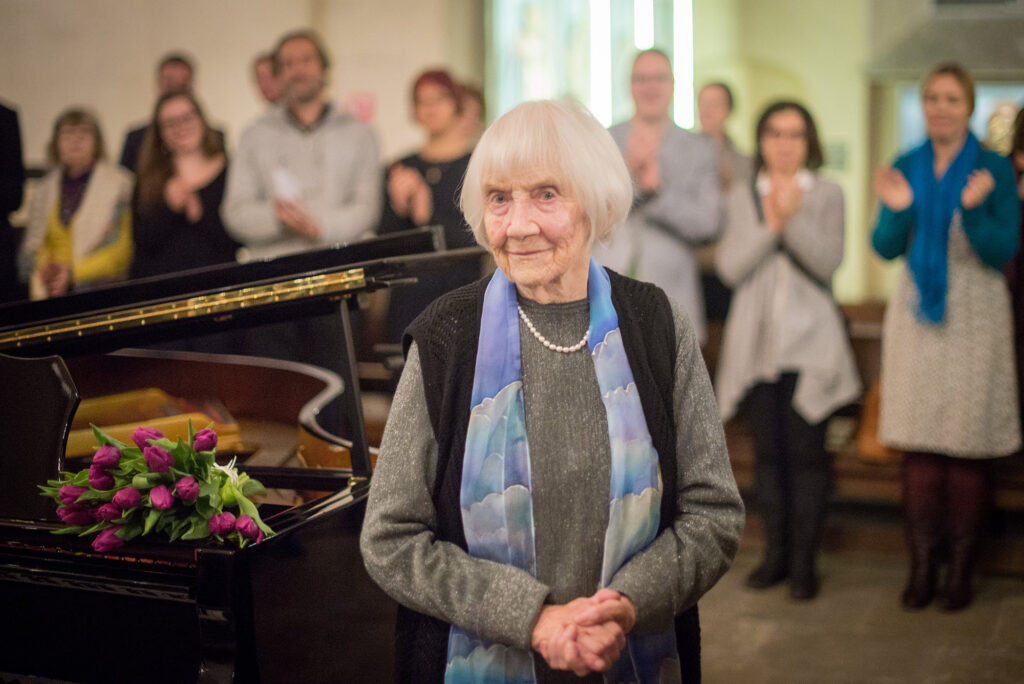Estonian composer Ester Mägi, regarded as the first lady of Estonian music, has died aged 99.
Mägi, who died on 14 May on her 100th year, was well respected for her compositions. She is mainly known for writing chamber music and choral works – which have for years been part of the Estonian Song Celebration repertoire – but Mägi also wrote a symphony, one of her few orchestral opuses and one that stands out as a remarkable work in Estonian music.
Mägi was born on 10 January 1922 in Tallinn to a simple family in the relatively newly independent Estonia. Her dad was a craftsman and mom stayed home to look after the family; she had also a brother and a sister.
But the family was doing well enough to afford a piano – it was bought after her sister, Hilda, had started taking piano lessons. Soon, Ester started to play it as well – just by hearing, following her sister’s repertoire. Mägi was self-taught until 16, when she started taking professional piano lessons – remarkably, in the first lesson, she played the first part of Beethoven’s Piano Sonata No. 1.
In 1938, she enrolled in the Tallinn Conservatory (now called the Estonian Academy of Music and Theatre). Her piano teachers there included Helm Viitol-Mohrfeld, Artur Lemba, Anna Klas and Erika Franz. Although she later described the Second World War (that reached Estonia with the Soviet occupation in 1940 and lasted through Nazi occupation from 1941-1944 and then ended with the Soviet occupation again in 1945) as one of the most difficult periods in her life, she managed to continue with her studies.
But in 1945, Mägi started experiencing problems with her hands, placing her further piano studies under a serious question mark. On the recommendation of musicologist Karl Leichter, Mägi turned to composition studies instead. She was accepted to the Tallinn Conservatory’s composition department by Heino Eller, who was impressed after witnessing Mägi performing to him two songs she had written just a day before.
At what was now called the Tallinn State Conservatoire by the Soviet authorities, Mägi was a student of Estonian composer and collector of folk songs, Mart Saar. She graduated in 1952 and continued with postgraduate studies at the Moscow Conservatoire until 1954 with professor Visarion Shebalin, one of the most erudite composers of his generation and a close friend of Dmitri Shostakovich. Shebalin also taught Veljo Tormis, with whom Mägi would be later compared.
Mägi’s compositional style evolved through a modernisation process over half a century – yet it retained intrinsic modesty. Her works are based on brief thematic cores, borrowed from – or inspired by – Estonian folk melodies.
When she started out as a young composer in the 1950s, her works followed the rules of the national romanticism. During the 1960s, her music became more influenced by Estonian folk music – diatonic modes and varying of brief motifs. From the end of 1960s modernistic features – polytonality and extended tonality, colourful harmony and excited rhythmic – began to enrich Mägi’s idiom. Since the 1980ies, stylisation elements emerged.

Outside of Estonia, Mägi’s works were first performed in the 1960s in Latvia, Lithuania and Russia. Since Estonia regained independence in 1991, the wider world opened – her works have since been performed in Finland, Sweden, Germany, the US, the UK and Australia.
Her chamber music has been played by renowned Estonian and foreign musical collectives and artists; her orchestral works have been conducted by Neeme Järvi, Eri Klas, Roman Matsov, Nikolay Alexeev and Emin Khachaturian. Mägi’s choral songs belong to the repertoire of numerous Estonian choirs and are regularly performed at Estonian Song Celebration concerts – the most important events in the country’s choral music calendar.

Just five days before Mägi’s death, her orchestral work, The Sea – written for the 1981 Estonian Song and Dance Celebration – was performed at the Europe Day Concert at St John’s Smith Square in London.
“If you still need any proof that taking the trouble to perform rarely heard music by female composers can bring worthwhile pieces into the concert hall for us all to enjoy, then here you go. With rockpools of clarinet amid the sands of the strings, this sound-picture was intensely evocative and drew us in like the sweep of the tide,” The Arts Desk, a British arts journalism outlet, said of the piece in its review.
Three CD albums with her music were released during her lifetime – “Ester Mägi. A musical portrait” (Antes Edition), “Ester Mägi. Tree of Song” (Alba Records) and “Ester Mägi. Orchestral Music” (Toccata Classics 2007). The last two are now also available on the streaming platform, Spotify.
Mägi also received numerous awards during her lifetime – the Prize of Soviet Estonia (1980), the Annual Music Award of Estonia twice (in 1985 and 1991), the Estonian Culture Award (1996), the Lifetime Achievement Award of the Estonian National Culture Foundation (1999), the Annual Award of the Cultural Endowment of Estonia (2001) for her creative achievements, the Annual Prize of Estonian Music Council (2008) and the Culture Prize of the Republic of Estonia for the long-time outstanding creative activity (2014).

She was also awarded the titles of Honorary Art Worker (1971) and People’s Artist (1984) of [Soviet] Estonia. In 1998, Ester Mägi received the fifth class Order of the National Coat of Arms by the Republic of Estonia.
Mägi was not merely a composer – she was also a teacher. She taught music theory at the Tallinn State Conservatoire from 1954–1984 and became a professor of music theory in 1977. In 1999 she was awarded an honorary doctorate degree by the Estonian Academy of Music and Theatre.

Her 99th birthday was celebrated this January with a concert by the Estonian National Symphony Orchestra and Estonian National Male Choir. It was an honourable nod to the composer who was regarded as the first lady of Estonian music.
Cover: Ester Mägi on her 95th birthday. Photo by Rene Jakobson.


Rest in peace Mägi! I hope your music gets heard even more all over the world as it has such depth and intensity.